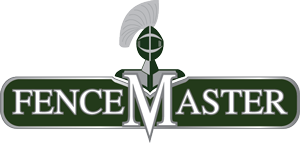
Installing a gate involves more than aesthetic considerations; it requires compliance with local regulations to ensure safety and neighborhood standards. Becoming acquainted with relevant city ordinances aids in effectively managing the installation process.
Before embarking on your project, it’s vital to review the specific installation guidelines applicable to your locality.
This preparation can simplify the journey and potentially prevent costly penalties.
Zoning laws may influence the type and dimensions of gates permissible in your area, which can impact your design decisions. Prioritizing adherence to these standards from the outset can result in significant time and cost savings.
Click here to learn more about: residential.html
Understanding Local Regulations For Gate Installations In Houston
Importance of Local Regulations
Following the previous discussion on aesthetic and safety aspects of gate installations, it’s essential for homeowners to gain a solid understanding of the specific regulations that govern their area. Awareness of local construction codes can help avoid unexpected complications during the installation process.
Neighborhood Guidelines and Building Permits
Different neighborhoods may have distinct guidelines regarding acceptable gate specifications, directly influencing design selections and the materials permitted. Obtaining the necessary building permits is crucial for ensuring safety standards are met while adhering to city ordinances.
Navigating Compliance Requirements
By familiarizing oneself with installation guidelines, homeowners can simplify their project experience and reduce the chances of facing legal issues down the road. Such knowledge aids in navigating zoning laws and neighborhood regulations, but it also enables property owners to comply with inspection criteria and design approvals.
Utility Mapping and Engagement with Local Authorities
Prioritizing understanding of utility mapping and easements is vital to maintain structural integrity while enhancing property aesthetics. In engaging with local authorities, homeowners can effectively coordinate their plans with community standards and safety inspections, ultimately resulting in a more successful installation process.

Key Zoning Laws For Gates: What You Need To Know In Texas
Understanding local zoning laws is essential for homeowners planning gate installation. These regulations help ensure that your project aligns with neighborhood standards and meets property lines, which is vital for community safety.
In Texas, each area has its own specific installation guidelines, including restrictions on height and design features. These zoning laws can significantly affect both the appearance and functionality of your gate.
Securing the proper residential permits is a critical step, as this action helps avoid potential legal problems during the installation process.
Staying informed about these compliance requirements not only enhances the installation experience but also promotes a successful project outcome.
Important Considerations for Gate Installation
- Local regulations differ greatly across various regions in Texas.
- Height and design limitations can significantly influence your gate’s functionality.
- Obtaining the necessary residential permits is essential to circumvent legal complications.
- Keeping abreast of local laws supports a more efficient installation process.
Essential Installation Guidelines For Successful Gate Projects
Building on the importance of local regulations and zoning laws discussed earlier, effective gate installation relies heavily on specific installation guidelines. Careful preparation aids in achieving a successful outcome for your project.
Start with a detailed site survey to evaluate the landscape. This assessment is crucial in developing a gate design that harmonizes with the environment while following aesthetic guidelines. Additionally, ensuring that your design meets community standards can prevent future complications.
Before beginning, gather all necessary tools and materials. This preparation not only enhances your efficiency but also helps in meeting construction standards.
Working closely with local authorities to clarify compliance requirements and required commercial permits is a wise choice. This proactive approach provides a strong foundation for your project, leading to a durable structure that boosts security and curb appeal.
Key considerations include:
- Adherence to construction codes and installation techniques.
- Understanding site plans and property lines.
- Obtaining required building permits and inspections.
- Fulfilling safety standards to ensure public safety.
- Confirming gate specifications that match community standards.
How City Ordinances Impact Your Gate Installations
The significance of local regulations extends beyond zoning laws, as they play a crucial role in shaping the outcome of your gate installation projects. Their impact can be observed in crucial elements such as height specifications, materials selection, and placement, ensuring adherence to the necessary inspection criteria.
Understanding City Ordinances
Before starting any work, performing thorough research on these city ordinances is essential to avoid problems later in the process. This proactive approach not only saves costs but also improves the overall execution of your project.
Consequences of Non-Compliance
Failure to comply can lead to penalties and changes to your installation that may prove financially burdensome. Additionally, neighborhood associations frequently impose their own fencing regulations, further influencing your design choices. By considering all these factors, you can create a gate design that elevates your property’s aesthetics while also adhering to local standards.
Local Regulations for Gate Projects
- Local building regulations outline specific prerequisites for gate height and materials.
- Investigating these ordinances can prevent expensive fines and possible modifications.
- Neighborhood associations may enforce supplementary guidelines affecting gate design and location.
- Adhering to local standards can enhance property value while ensuring compliance with aesthetic guidelines.
Important Specifications For Gates To Ensure Compliance
After reviewing local regulations and zoning laws, it is important to understand the specific specifications required for installing gates. Compliance demands a clear understanding of various codes affecting gate installations, as these details form the base for a successful project.
Material standards must always align with local safety standards, emphasizing durability and the ability to handle environmental challenges. Additionally, considering setback requirements is vital to avoid potential legal issues that may arise from violating property lines or zoning restrictions.
Meeting specified gate dimensions guarantees adherence to height and width regulations for both commercial and residential setups. Incorporating advanced locking mechanisms and security features significantly improves safety, providing peace of mind for property owners and businesses alike. Furthermore, operational guidelines should address crucial safety measures, effectively minimizing the risk of accidents during everyday use.
These specifications not only ensure reliable gate installations but also promote compliance with local mandates, improving the overall aesthetic and functional value of your property.
Navigating Local Construction Codes For Safe Gate Installations
Understanding local regulations is vital for gate installation. The importance of compliance cannot be overstated. Knowing surrounding city ordinances helps you avoid unforeseen challenges during the installation.
Familiarizing yourself with local construction documentation is essential for homeowners and contractors. These legal requirements ensure compliance and prioritize safety throughout the process.
Every city or county has unique rules that influence design and materials used. Conduct thorough research through municipal websites or local planning departments. This will help gather the information needed to facilitate your project applications. Non-compliance can lead to significant delays and potential fines.
Obtaining the necessary building permits reflects a commitment to following local regulations. It showcases dedication to safety standards and community welfare. This process highlights the importance of following installation guidelines that suit specific regions, considering factors like environmental assessments and neighborhood regulations.
Emphasizing appropriate gate specifications ensures installations meet local mandates, especially regarding setbacks and property lines. Meeting these established guidelines simplifies code enforcement through accurate construction documentation and well-prepared project applications, paving the way for smoother approvals.
Moreover, incorporating safety inspections and maintaining compliance requirements enhance the structural integrity of your installations. Prioritizing these standards benefits aesthetic guidelines and builds trust with local authorities, ensuring that residential and commercial permits support the installation processes.
Ultimately, navigating local construction codes allows homeowners and contractors to deliver safe and effective gate installations. It also contributes positively to the community while maintaining high standards of professional practice.
Meeting Safety Standards When Installing Gates In Residential And Commercial Properties
Ensuring safety during gate installations is crucial for creating secure environments. Property owners should prioritize compliance with local regulations and operational effectiveness to protect all users.
Whether for residential or commercial purposes, installations must consider safety standards, emphasizing the importance of the structural integrity of gates. This focus helps guarantee that gates not only operate efficiently but also integrate smoothly with the property’s overall appearance.
Using high-quality fencing materials is vital for mitigating risks, such as pinch points during operation. These materials enhance durability, helping gates tolerate various environmental conditions and frequent usage.
Regular maintenance and safety inspections are essential for prolonging the life of gates. A systematic approach to inspections contributes to effective traffic control within neighborhoods and business areas, reinforcing compliance with inspection criteria set by local authorities.
Engaging local authorities in the inspection phase underscores the commitment to safety standards. This collaboration fosters trust between property owners and community officials, facilitating a smoother process for obtaining both residential and commercial permits.
Implementing advanced access control features, like electronic locks, significantly boosts the security of gate installations. These enhancements provide confidence for property managers and homeowners while ensuring adherence to aesthetic guidelines and safety standards.
Overall, maintaining a strong focus on safety standards during gate installation supports community well-being. This diligence benefits individual property owners and positively impacts the surrounding area, ensuring that residents and visitors can enjoy secure and welcoming spaces.
Overview Of Required Building Permits For Gate Projects In Houston
Understanding Building Permits
Comprehending the regulations around gate projects is essential for ensuring compliance with local requirements, especially considering the discussions on safety and installation guidelines. Gate installations in Houston must adhere to specific city ordinances that can significantly influence both residential and commercial projects.
Importance of Zoning Laws
Knowledge of zoning laws is crucial, as these regulations can impose unique stipulations depending on the location and project scope. For instance, specific installation techniques may vary between residential and commercial settings, highlighting the significance of attention to detail in every aspect of the project.
Navigating the Regulatory Landscape
Securing the appropriate building permits begins with understanding the regulatory framework. Engaging with local authorities and conducting thorough research will aid the application process, reducing the risk of delays or unexpected penalties. Community standards play a significant role in shaping project timelines, so being well-informed about the legal requirements is vital.
| Permit Type | Scope | Compliance Requirements |
|---|---|---|
| Residential Permit | Home Gate Installation | Specific hardware and installation guidelines |
| Commercial Permit | Business Gate Installation | Unique stipulations per zoning laws |
| Zoning Regulations | Residential and Commercial Projects | Community standards adherence |
Collaborating With Local Authorities For Smooth Gate Permit Approvals
Building strong relationships with local officials is key. This helps in obtaining the necessary permissions for gate projects. Engaging with city planners clarifies crucial safety inspections and a thorough understanding of city ordinances related to gate installations.
Understanding relevant regulations is critical for meeting accessibility codes and other compliance requirements. Knowledge of the installation guidelines can save both time and resources, ensuring a more efficient application process.
Participating in community meetings helps you gain important insights. This reduces potential obstacles during the approval phase. Being aware of local zoning laws allows you to adjust your plans to fit community standards effectively.
Carefully preparing construction documentation is essential. A complete submission greatly lowers the chances of delays. Staying open to maintenance requirements and feedback from local authorities can also improve your approval process.
This thorough approach ensures adherence to inspection criteria, which promotes timely project completion. It also boosts local safety while meeting the relevant zoning laws.
Inspection Criteria To Ensure Compliance For Gate Installations
Following the discussions on the important aspects of working with local authorities and understanding safety requirements, it is essential to highlight how robust inspection criteria play a key role in successful gate installations. Clarity on site plans and local regulations empowers property management teams to preempt unforeseen challenges.
Regular inspections are crucial for spotting problems early and promoting a secure environment for every user. Furthermore, adhering to design criteria not only guarantees operational efficiency but also enhances the property’s overall visual appeal.
Incorporating these practices reduces the risk of penalties while boosting both the security and maintenance of the facility. Being knowledgeable about construction codes and safety inspections aids in achieving a smooth installation process, ultimately leading to favorable project outcomes. Property owners should also prioritize compliance with access control measures and community standards to ensure their installations are accepted and effective.
| Inspection Importance | Benefits of Compliance |
|---|---|
| Early issue detection | Minimized penalties |
| Enhanced safety for users | Improved visual appeal |
| Operational efficiency | Smoother installation experience |
Pool Fence Materials Aluminum Wrought Iron And More From Fencemaster Houston
Decorative Gate Hardware And Accent Options From Fencemaster Houston


